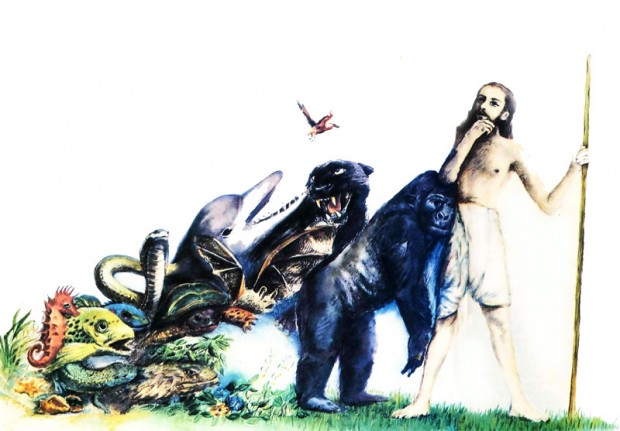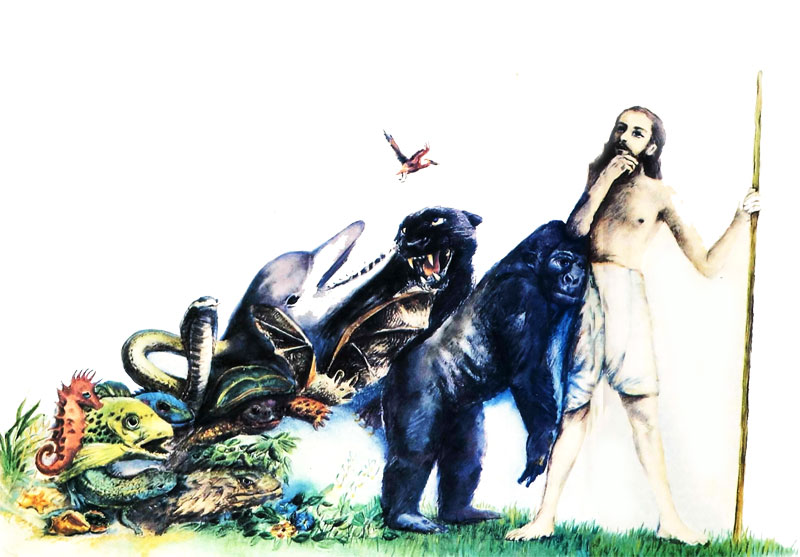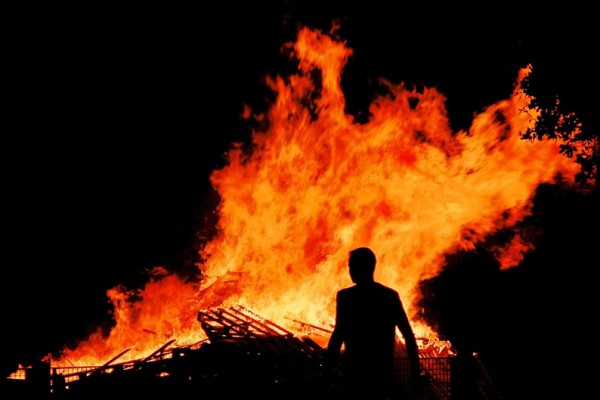Reality is structured; governed by laws. And that is evidenced by patterns. For instance, everywhere on earth that one may throw an object into the sky, it will return to the ground. Depending primarily on the mass of the object and the force that was exerted upon it, the height achieved by the object and the time taken for it to return will differ in a manner that is calculable. Scientists have similarly searched out patterns for countless phenomena that occur in the physical world and thus we have the subjects of physics, chemistry, biology, mathematics, etc. and their corresponding laws. However, dogma of both a religious and a scientific kind have hindered an unbiased inquiry by modern scientists into the patterns of our own metaphysical reality. While we now have logically and philosophically comprehensible and cohesive answers to questions pertaining to our day-to-day survival and entertainment, science is yet to discover equally persuasive answers to the questions of life and death.
Why are we born; some to a life of riches while others in the gallows of poverty? Why do we look the way we do, some beautiful and others ugly? Why do good things happen to bad people and the other way around? Why do the innocent suffer while the guilty roam free? Why do we die? Does it seem right that the above questions are categorically ordained to the realms of randomness by the same scientists who strive endlessly to see patterns and laws in the microscopic movements of subatomic molecules? This “scientific” attitude will seem rather nonsensical and counterintuitive to the unbiased observer and so herein are presented two laws that do in fact offer philosophically and logically sound alternatives to our presently prevailing paradigm. The current western worldview induces one to consider all the above situations of life a result of randomness, totally devoid of reason, even though that is completely uncharacteristic of the rest of reality which functions like clockwork. But the Vedic perspective explained below is exactly the opposite and aligns completely with our observations of the rest of nature. It constitutes the laws of Karma and Samsara; two frequently misunderstood and hence easily misused concepts, that are accurately elucidated herein, as described in their original source, the ancient Vedic texts.
Karma is cosmic justice. It can be easily understood as a metaphysical extension of Newton’s 3rd law: for every action there is an equal and opposite reaction. Just as Newton’s laws apply to all objects, all over the planet, irrespective of our knowledge thereof; similarly, karma brings to all sentient beings the effects of their actions, in the course of time, irrespective of their acknowledgement. It is crucial to understand that time is the vehicle that carries our karma to us. In other words, the results of certain actions may occur within a short time from their cause, but the results of other actions may take many years to fructify. For instance, if I were to slap you now, and you were to slap me in return, I would have received the karmic reaction of my action within moments of the cause. However, if you had restrained yourself from slapping me in return, I would be due to receive the karmic reaction of my action at some time in the future. A useful analogy to understand how we receive our karma is that of an attendant bagging our purchased items at a grocery store. The attendant will not always place our items in the bags according to the order in which we purchased them. Instead, the attendant will place the items in the order that is most convenient to carry and least likely to cause damage. For example, he or she probably won’t place the ice-cream along with some hot bread! Similarly, we won’t receive our karmic reactions in the order we performed our actions, but in the order that restores the cosmic balance.

Who can claim that their body has always been the same and not seen the tremendous changes from boyhood to youth to adulthood to old age?
However, karma fails to give answers until understood alongside reincarnation. The theory of reincarnation suggests that we, as embodied selves or souls, have been wandering around the universe since time immemorial; constantly changing bodies in a cycle of birth and death. Any honest person will admit that even within the confines of this one life, their body has never really been the same for more than a few years. In fact, every single body in existence is going through six different stages of birth, growth, reproduction, maintenance, dwindling and death. Who can claim that their body has always been the same and not seen the tremendous changes from babyhood to youth to adulthood to old age? The Vedic teachings of reincarnation are only an extension of this very evident phenomenon. They suggest that since we’ve only ever known the change of bodies, that is exactly what happens at death. Just as we’ve been accepting new bodies at every stage of “life,” we accept another new body at “death”. This is the law of samsara or reincarnation in the cycle of life and death.
According to our karma, we receive birth in a particular family with a particular body type, having certain innate talents within a particular nation, of a particular planet, and in a particular universe. Nothing is left to randomness; everything has a reason. Even what seem to appear to us as accidents or coincidences, are the results of our actions from the past. So when someone ‘innocent’ faces turmoil in life, or when a ‘wrongdoer’ enjoys happiness, it is a result of their actions from previous lives. In fact, every single situation that we face in life is karmically bound to our past. In effect, that which we do now creates our own future. Indeed, we are the true architects of our lives and in many ways our destiny is in our hands.
Professor Ian Stevenson, until his retirement in 2002, was the head of the Division of Perceptual Studies at the University of Virginia. He investigated more than 2500 past life cases which he published in a series of technical books: Cases of the Reincarnation Type (1975-1983), Children Who Remember Previous Lives: A Question of Reincarnation (1987), etc. He was internationally renowned for his research, which he called the “survival of personality after death” (Fox, NY Times, 2007). It revealed that many people do in fact have memories from their past lives and that these memories are fresh mostly in young children. But why do only some people remember and not everyone?
The Vedic literature explains that our subtle mind, the storehouse of all our memories, travels with us from one body to another in the cycle of samsara. And that a combination of our karma and our thoughts at the moment of death lead us to another body. Some people, especially those who die in traumatic ways, have very strong impressions from their previous lives on their subtle mind. This strong attachment to the previous body enables them to recall certain events, people and places from their past lives, even in their current body. However, just like most of us forget our childhoods by the time we’re in adult bodies, most people forget their past lives after birth. This is indeed desirable, as it saves us from chronic personality disorder! Reincarnation also provides an explanation for many psychological phenomena such as phobias. What modern science explains away as “irrational” phobias are simply strong impressions on our minds from past lives still affecting the psyche in our current life. So it is likely that those people who’re afraid of heights or darkness without any apparent reason, in this life, have had a traumatic experience at a high place or in the darkness in a previous life.
There are three kinds of actions: good actions, bad actions, and non-karmic actions. Good actions result in good karma such as getting a good job, having a healthy life, winning a lottery, etc. Bad actions, those that cause unnecessary suffering to other living beings, result in bad karma such as falling ill, meeting with an accident, having a poor relationship, etc. Bad karma is not as much punishment as it is an opportunity for learning. Just as there’s no better way to teach a thief not to steal than by having something dear stolen from him, bad karma offers every one of us an opportunity to learn from our mistakes. No action, good or bad, is ever overlooked in the cosmic scheme; karma is as infallible as gravity. However, those actions that are performed in transcendental consciousness, when the doer is not looking to selfishly enjoy the results of the activities but is offering them to God, do not incur any kind of karma and are thus called non-karmic or akarmic activities.
The nature of karma is to bind the performer to the material plane of existence. This is because anyone who has some karma remaining at the moment of death must receive another body in order to enjoy or suffer the result of their karmic actions. Thus the only way to escape the endless cycle of birth and death is to cease all karmic activities and perform all work in transcendental consciousness. But why would anyone want to escape the cycle of samsara? To many it may be more appealing to simply accumulate good karma and enjoy the results in a worldly life of luxury. However, good karma -no matter how good- will also bring one back to the material atmosphere, wherein it is impossible to escape the four unwanted conditions of life: birth, old age, disease and death. Irrespective of anyone’s karma, all must face the discomfort of gestation and birth, the inconvenience of old age, the pain of disease, and finally, the doom of separation at death. A truly happy existence must therefore be devoid of these four conditions and so, those who are convinced of this, seek respite from the cycle of repeated birth and death.
Karma and reincarnation, correctly understood, do away with what theologians refer to as the problem of evil. In the Vedic paradigm, life is not unfair or out of our control; everyone deserves exactly what they are experiencing. This is a much more satisfying outlook than the commonly held belief that everyone is victim to randomness or that we’re at the whims of a heavenly screenwriter. Although this paradigm may seem deterministic at first glance, a deeper understanding of it reveals that it certainly allows for free will. Even though our present circumstances are predetermined by our own choices from the past, our future is dependent on our choices right now. The situations we find ourselves in life may for the time being be out of our control, but how we respond to those circumstances and in what consciousness, will determine our future; in that way we have free will.
The purpose of understanding karma and reincarnation isn’t so that we can blame others for their ill-luck or fixate over the karmic consequences of our every action. The purpose is to understand that we’ve been here in the material world a very long time and that we will continue to watch the same movie of life again and again, with only slight changes in the script, until we endeavor to gain release from the cycle of birth and death by understanding our essential nature as eternal spiritual beings in search for the absolute truth; the highest plane of existence devoid of birth, old age, disease and death.



